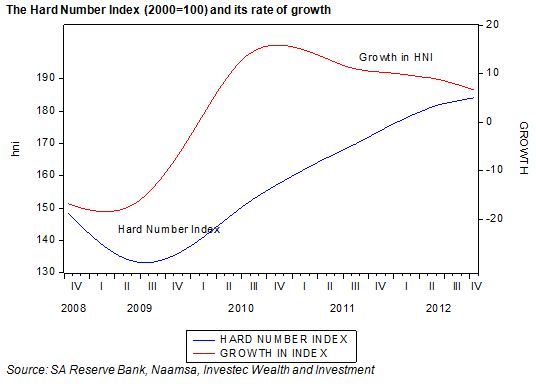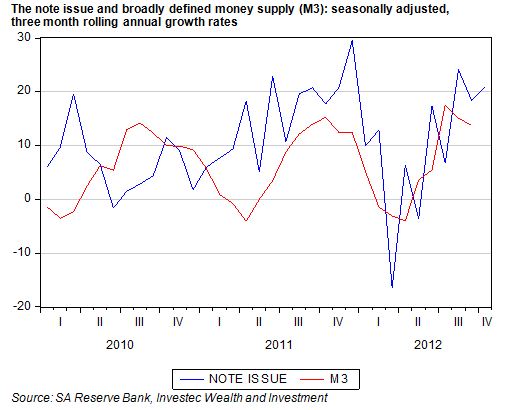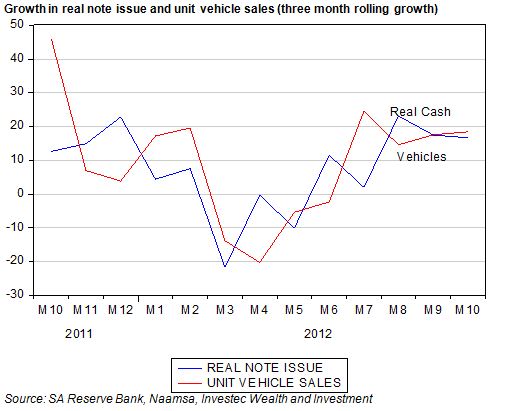The demand for cash supplied by the Reserve Bank continued to grow strongly in the three months to October 2012. As we have explained before, the Reserve Bank note issue has proved to be a very good indicator of the spending intentions of SA households.
As we show below, the demand for cash fell off in early 2012 but picked up very strongly from mid year. Over the past three months the note issue, seasonally adjusted and annualised, grew by a robust 21%. As we also show, the growth in the broader money supply – mostly in the form of deposits issued by the banks – grew similarly in the three months to September month end.
Unit vehicle sales have followed a very similar trajectory to the note issue (adjusted for inflation), losing momentum in the first half of 2012 and then recovering strongly to October.
Unit vehicle sales and the note issue (adjusted for the CPI) make up our Hard Number Index (HNI) of the state of the economy. The HNI has two advantages: it is very up to date (updated to October 2012 month end) and it is based on actual recorded volumes (hard numbers) rather than the estimates made from sample surveys.
Given the strength in both vehicle sales and cash volumes, the HNI indicates that the economy has continued to move forward at a good pace. Its rate of growth – what can be regarded as the second derivate of economic activity – however continues to slow down. The indications therefore are that the SA economy is continuing to move forward at a good pace but that its forward momentum is slowing.

Other data releases for October – to be released in due course – are likely to confirm that domestic spending intentions and actions remain robust, surprisingly perhaps to the market place.
The figures for the note issue and unit vehicle sales are the first data posted for the economy post Marikana. It would appear that the strike action on the mines and roads of SA have had little negative influence on spending intentions. This resilience of domestic demand is very welcome when foreign demand is growing as slowly as it is, given the weak state of the global economy. If the economy is to retain its growth momentum, which is essential for political stability and a satisfactory fiscal state of affairs, it will continue to depend on the domestic spender. Domestic spending is being encouraged by low interest rates, which can be expected to stay low until global economic conditions improve.

